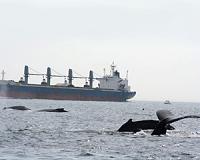 |
Paris (AFP) March 24, 2010 Global warming could reduce the range of plant biodiversity by more than nine percent by century's end, and poor countries least to blame for the problem will be worst hit, a study published on Wednesday says. German biologists used the UN climate panel's computer models for possible temperature rise, and crunched through data on "capacity for species richness," or CSR, meaning the likely count of plant species per area. In 13 out of 18 scenarios, global CSR "declined significantly" by 2100, by an average of 4.9 percent. Under "B1," the most optimistic scenario used by the UN's Intergovernmental Panel on Climate Change (IPCC), the global average temperature would rise by 1.8 degrees Celsius (3.24 degrees Fahrenheit) by 2100. As a result, there would be a tiny gain of 0.3 percent in global CSR, as flora benefited from rising carbon dioxide (CO2) levels. But under the A1F1 scenario -- viewed by many experts as a grim but realistic prospect -- temperatures would rise by 4.0 C (7.2 F). In such a case, CSR would fall by an average 9.4 percent. Change, though, would be unequal. In far northerly latitudes, land locked in permafrost would open up to vegetation through warming, which implies uninhabited tracts of Canada or Siberia could be opened up to agriculture. But deserts, savannahs, moist tropical forests and other habitats where humidity holds the key to species survival would be damaged by water stress. The Amazonian rainforest would be the most vulnerable of all. One consequence is that "generalist" species that can adapt to change could expand at the expense of less versatile native plants that can only survive in a narrow temperature range, says the study. These could become rarer and even become extinct. "While in most temperate and Arctic regions a CSR increase is expected, the projections indicate a strong decline in most tropical and subtropical regions," say the researchers, led by Jan Henning Sommer of the University of Bonn. "Countries least responsible for past and present greenhouse-gas emissions are likely to incur disproportionately large future losses in CSR, whereas industrialised countries have projected moderate increases." The paper is published by a British journal, Proceedings of the Royal Society B.
Share This Article With Planet Earth
Related Links Farming Today - Suppliers and Technology
 Whales, Tuna And The Clash Of Civilizations
Whales, Tuna And The Clash Of CivilizationsTokyo (RIA Novosti) Mar 23, 2010 On March 12, Pete Bethune, captain of the Ady Gil, an anti-whaling boat belonging to the Sea Shepherd Conservation Society, was arrested for illegally boarding a Japanese ship. The arrest was the logical outcome of Western environmentalists' war against Japanese whalers in the Antarctic this season. The Ady Gil collided with the Japanese whaling security ship Shonan Maru No. 2 in January. ... read more |
|
| The content herein, unless otherwise known to be public domain, are Copyright 1995-2010 - SpaceDaily. AFP and UPI Wire Stories are copyright Agence France-Presse and United Press International. ESA Portal Reports are copyright European Space Agency. All NASA sourced material is public domain. Additional copyrights may apply in whole or part to other bona fide parties. Advertising does not imply endorsement,agreement or approval of any opinions, statements or information provided by SpaceDaily on any Web page published or hosted by SpaceDaily. Privacy Statement |